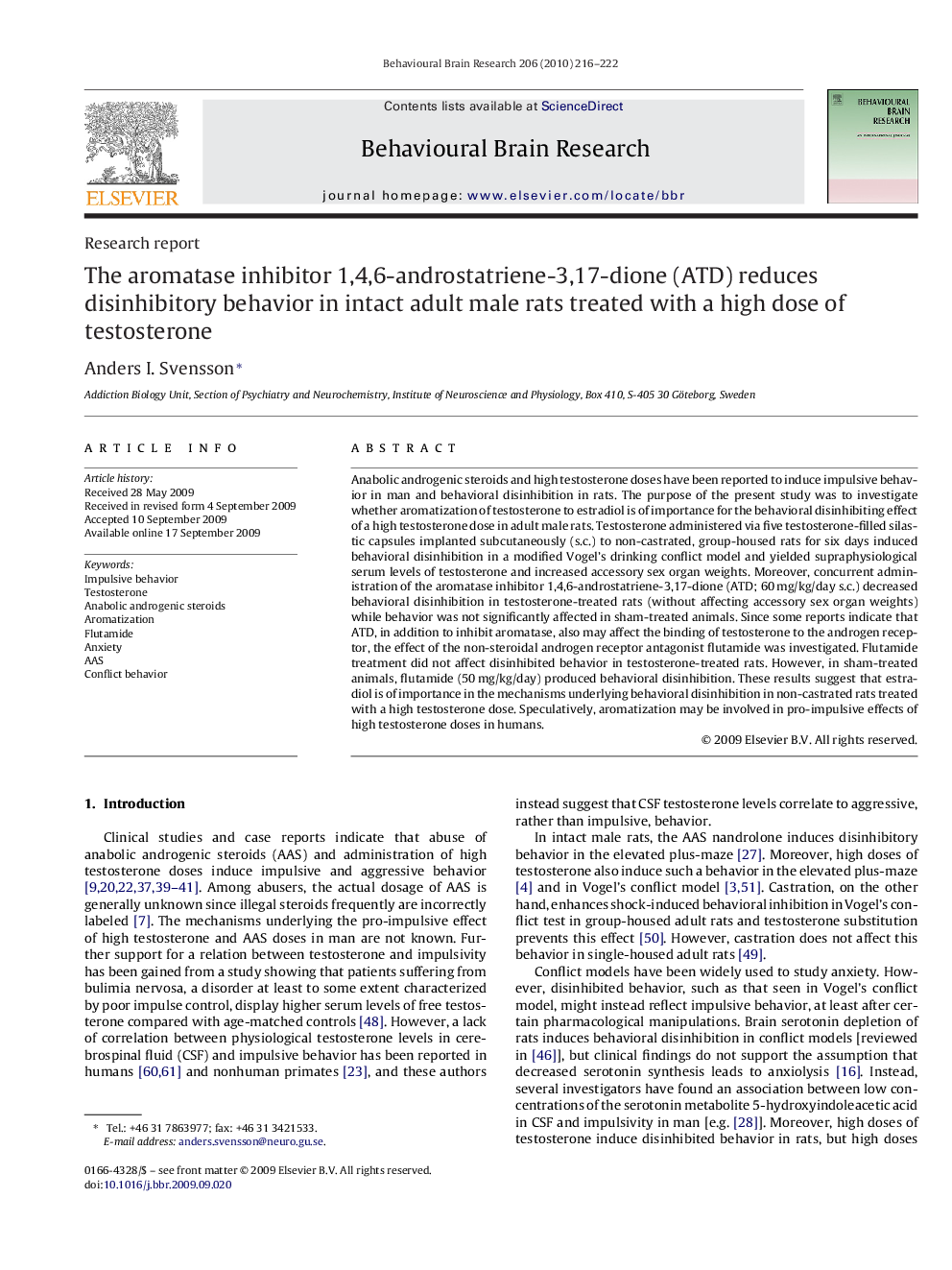| کد مقاله | کد نشریه | سال انتشار | مقاله انگلیسی | نسخه تمام متن |
|---|---|---|---|---|
| 6260145 | 1290036 | 2010 | 7 صفحه PDF | دانلود رایگان |

Anabolic androgenic steroids and high testosterone doses have been reported to induce impulsive behavior in man and behavioral disinhibition in rats. The purpose of the present study was to investigate whether aromatization of testosterone to estradiol is of importance for the behavioral disinhibiting effect of a high testosterone dose in adult male rats. Testosterone administered via five testosterone-filled silastic capsules implanted subcutaneously (s.c.) to non-castrated, group-housed rats for six days induced behavioral disinhibition in a modified Vogel's drinking conflict model and yielded supraphysiological serum levels of testosterone and increased accessory sex organ weights. Moreover, concurrent administration of the aromatase inhibitor 1,4,6-androstatriene-3,17-dione (ATD; 60Â mg/kg/day s.c.) decreased behavioral disinhibition in testosterone-treated rats (without affecting accessory sex organ weights) while behavior was not significantly affected in sham-treated animals. Since some reports indicate that ATD, in addition to inhibit aromatase, also may affect the binding of testosterone to the androgen receptor, the effect of the non-steroidal androgen receptor antagonist flutamide was investigated. Flutamide treatment did not affect disinhibited behavior in testosterone-treated rats. However, in sham-treated animals, flutamide (50Â mg/kg/day) produced behavioral disinhibition. These results suggest that estradiol is of importance in the mechanisms underlying behavioral disinhibition in non-castrated rats treated with a high testosterone dose. Speculatively, aromatization may be involved in pro-impulsive effects of high testosterone doses in humans.
Journal: Behavioural Brain Research - Volume 206, Issue 2, 20 January 2010, Pages 216-222